Heat stress is a very serious situation for chickens and can quickly go from serious to deadly. Even when pulling out all the stops to keep our chickens safe in the heat, according to Gail Damerow in The Chicken Encyclopedia, “During long periods of extreme heat, hens stop laying and all chickens suffer stress. When temperatures reach 104° F (40° C) or above, chickens can’t lose excess heat fast enough to maintain a proper body temperature and may die.”

Among the many ways to combat heat stress that I covered in my blog post Beat the Heat, is supplementing their drinking water with electrolytes. I recommend keeping vitamins and electrolytes handy in a well stocked chicken first aid kit, but in an emergency, it is possible to make electrolytes with ingredients commonly found in most homes.
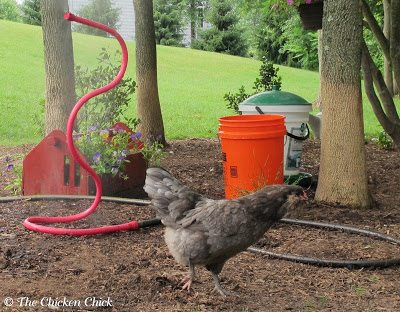
The mister was a bargain at less than ten dollars and keeps the surrounding area cool.
In temperatures over 90° F, keep a bucket or tub full of cool, water (not cold) near the flock at all times. If anyone begins to look overheated, panting, wings away from its sides, droopy, lethargic or pale in the wattles and comb, IMMEDIATELY submerge in the cool water up to its neck to bring its body temperature down. This simple measure can be lifesaving. Even if chickens are not in danger, this can be a welcome relief to chickens that would not voluntarily wade into water.
A dehydrated chicken may exhibit any or all of the following symptoms, which could result in death:
- panting or labored breathing
- pale comb and/or wattles
- spreading wings away from body
- diarrhea
- lethargy
- limpness
- unresponsive
- seizures,convulsions
Heat stress and dehydration deplete the body of electrolytes required for a chicken’s normal body functioning, therefore replenishing them is a priority when chickens suffer from heat stress and/or dehydration. The following instructions for making a homemade electrolyte solution can be found in The Chicken Encyclopedia.
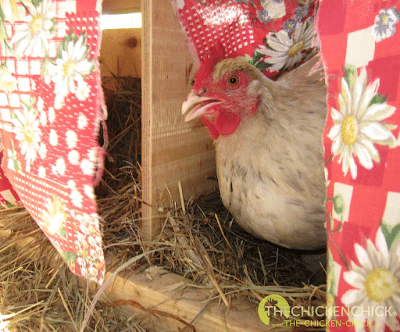
HOMEMADE ELECTROLYTE SOLUTION
INGREDIENTS
1/2 teaspoon potassium chloride (Morton salt substitute) (If you don’t have it, omit it)
1 teaspoon sodium bicarbonate (baking soda)
1 teaspoon sodium chloride (table salt)
1 tablespoon sucrose (sugar)
1 gallon water
ADVISORY: Electrolytes should not be given to healthy chickens who are not suffering from heat stress or dehydration.
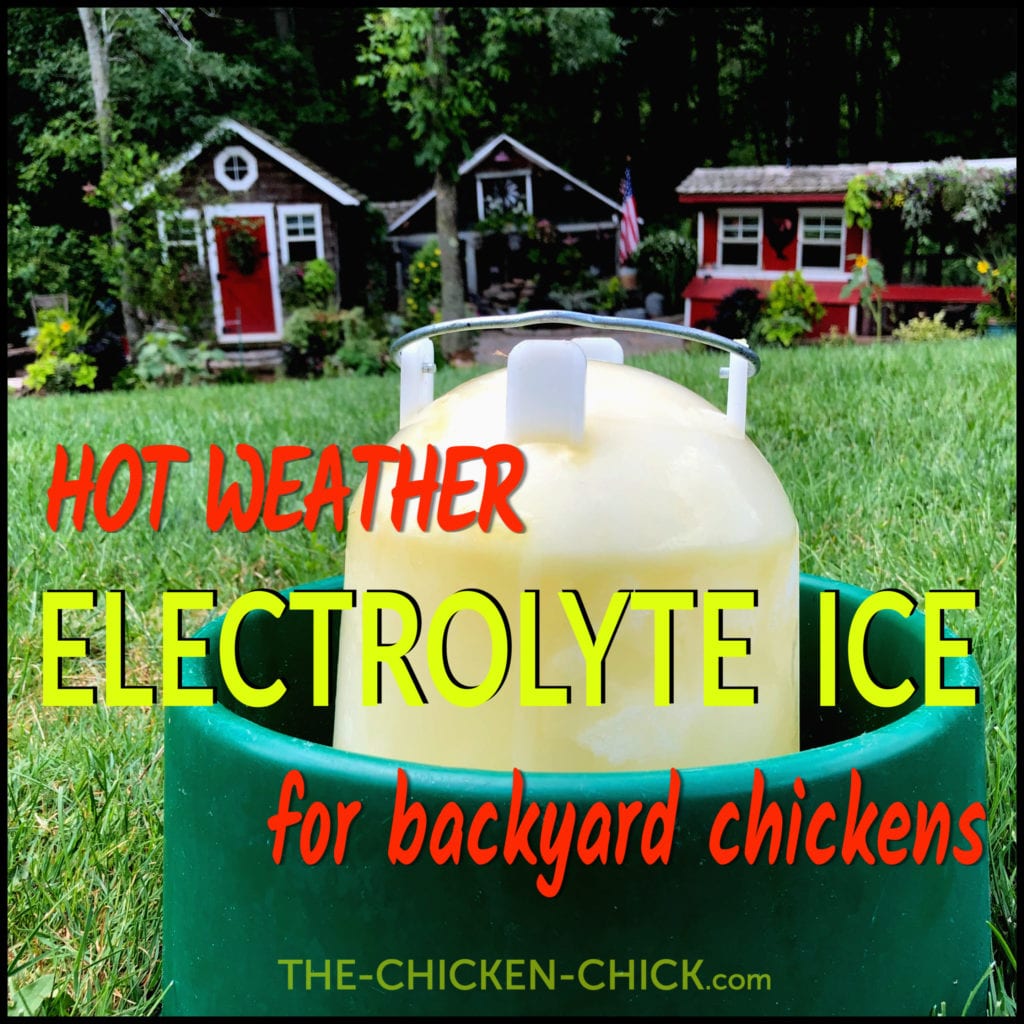
Mix up electrolytes in drinker & freeze overnight for a cold way to restore electrolyte balance in birds suffering from heat stress.
While we’re on the topic of heat advisories, it bears repeating that vinegar should NOT be added to drinking water during times of high heat. According to Dr. Mike Petrik, DVM, MSc, a poultry veterinarian, “Acidified water affects laying hens by making the calcium in her feed a little less digestible (based on chemistry….calcium is a positive ion, and dissociates better in a more alkaline environment). Professional farmers regularly add baking soda to their feed when heat stress is expected….this maintains egg shell quality when hens’ feed consumption drops due to the heat.”
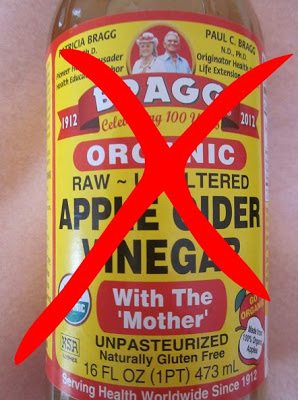
In summary, during high heat conditions, baking soda facilitates calcium absorption while vinegar inhibits it. SKIP the vinegar in the heat, opting for an electrolyte solution instead.
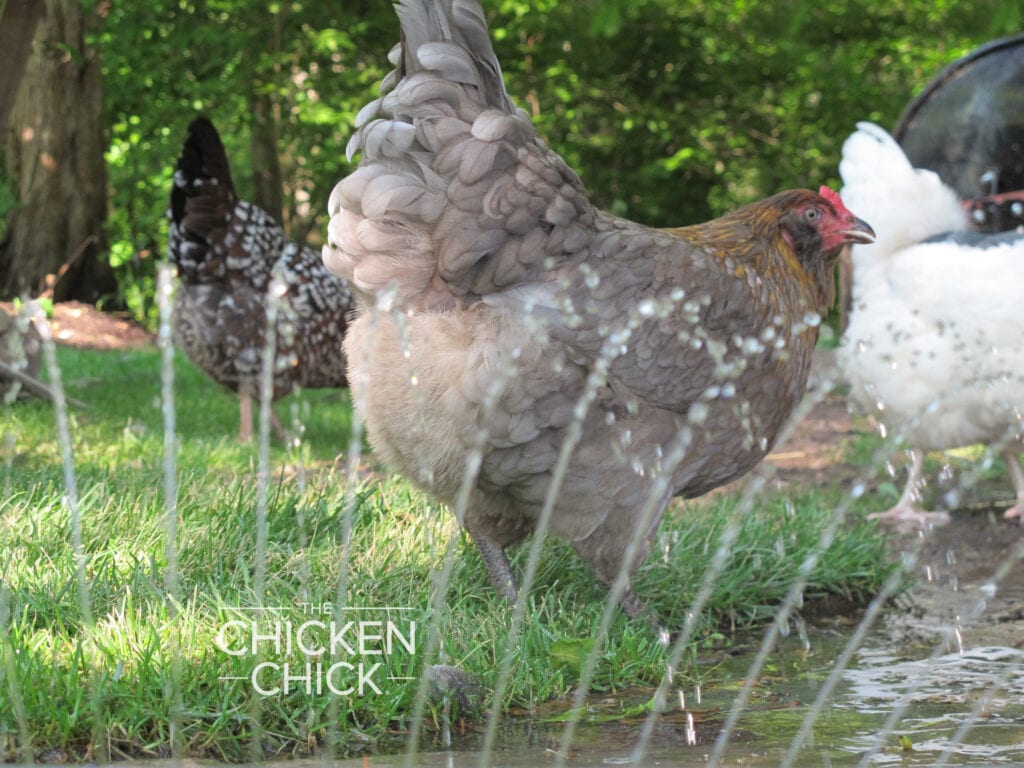
Kathy Shea Mormino
Affectionately known internationally as The Chicken Chick®, Kathy Shea Mormino shares a fun-loving, informative style to raising backyard chickens. …Read on


shop my SPONSORS
Heat stress is a very serious situation for chickens and can quickly go from serious to deadly. Even when pulling out all the stops to keep our chickens safe in the heat, according to Gail Damerow in The Chicken Encyclopedia, “During long periods of extreme heat, hens stop laying and all chickens suffer stress. When temperatures reach 104° F (40° C) or above, chickens can’t lose excess heat fast enough to maintain a proper body temperature and may die.”

Among the many ways to combat heat stress that I covered in my blog post Beat the Heat, is supplementing their drinking water with electrolytes. I recommend keeping vitamins and electrolytes handy in a well stocked chicken first aid kit, but in an emergency, it is possible to make electrolytes with ingredients commonly found in most homes.

The mister was a bargain at less than ten dollars and keeps the surrounding area cool.
In temperatures over 90° F, keep a bucket or tub full of cool, water (not cold) near the flock at all times. If anyone begins to look overheated, panting, wings away from its sides, droopy, lethargic or pale in the wattles and comb, IMMEDIATELY submerge in the cool water up to its neck to bring its body temperature down. This simple measure can be lifesaving. Even if chickens are not in danger, this can be a welcome relief to chickens that would not voluntarily wade into water.
A dehydrated chicken may exhibit any or all of the following symptoms, which could result in death:
- panting or labored breathing
- pale comb and/or wattles
- spreading wings away from body
- diarrhea
- lethargy
- limpness
- unresponsive
- seizures,convulsions
Heat stress and dehydration deplete the body of electrolytes required for a chicken’s normal body functioning, therefore replenishing them is a priority when chickens suffer from heat stress and/or dehydration. The following instructions for making a homemade electrolyte solution can be found in The Chicken Encyclopedia.

HOMEMADE ELECTROLYTE SOLUTION
INGREDIENTS
1/2 teaspoon potassium chloride (Morton salt substitute) (If you don’t have it, omit it)
1 teaspoon sodium bicarbonate (baking soda)
1 teaspoon sodium chloride (table salt)
1 tablespoon sucrose (sugar)
1 gallon water
ADVISORY: Electrolytes should not be given to healthy chickens who are not suffering from heat stress or dehydration.

Mix up electrolytes in drinker & freeze overnight for a cold way to restore electrolyte balance in birds suffering from heat stress.
While we’re on the topic of heat advisories, it bears repeating that vinegar should NOT be added to drinking water during times of high heat. According to Dr. Mike Petrik, DVM, MSc, a poultry veterinarian, “Acidified water affects laying hens by making the calcium in her feed a little less digestible (based on chemistry….calcium is a positive ion, and dissociates better in a more alkaline environment). Professional farmers regularly add baking soda to their feed when heat stress is expected….this maintains egg shell quality when hens’ feed consumption drops due to the heat.”

In summary, during high heat conditions, baking soda facilitates calcium absorption while vinegar inhibits it. SKIP the vinegar in the heat, opting for an electrolyte solution instead.















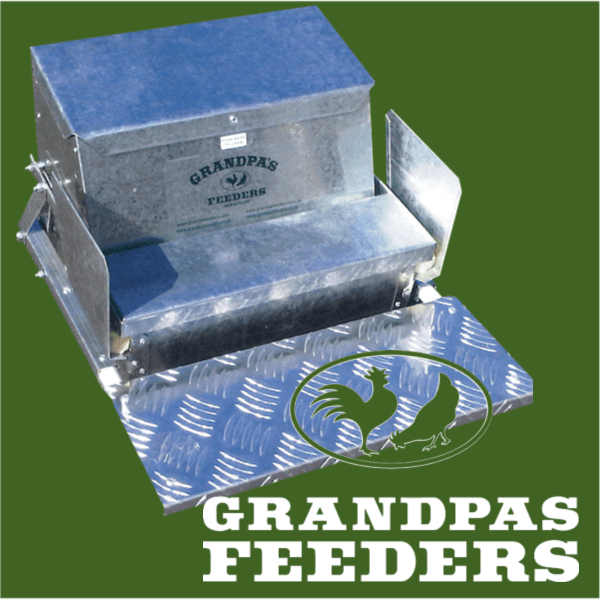






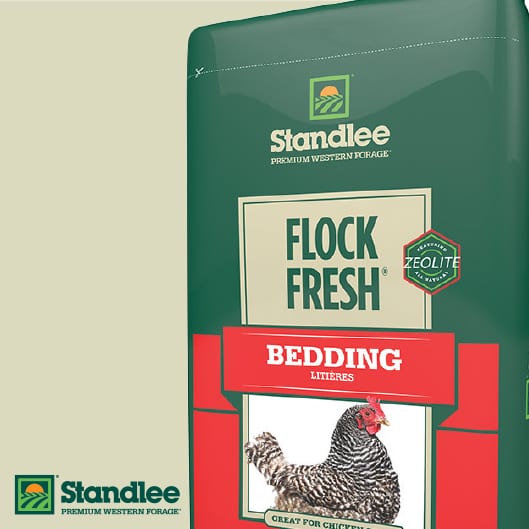
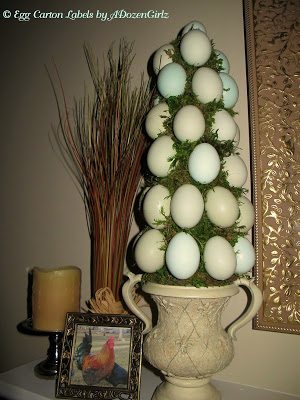

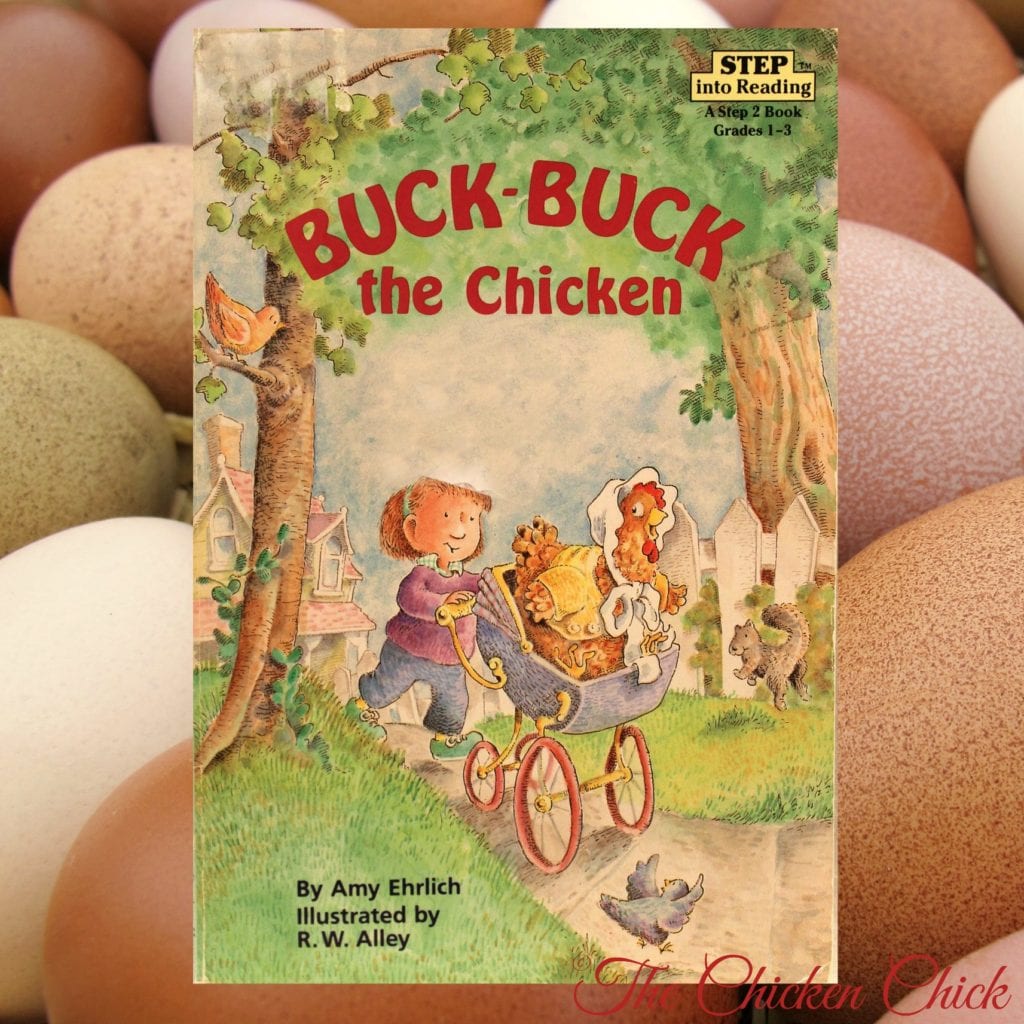













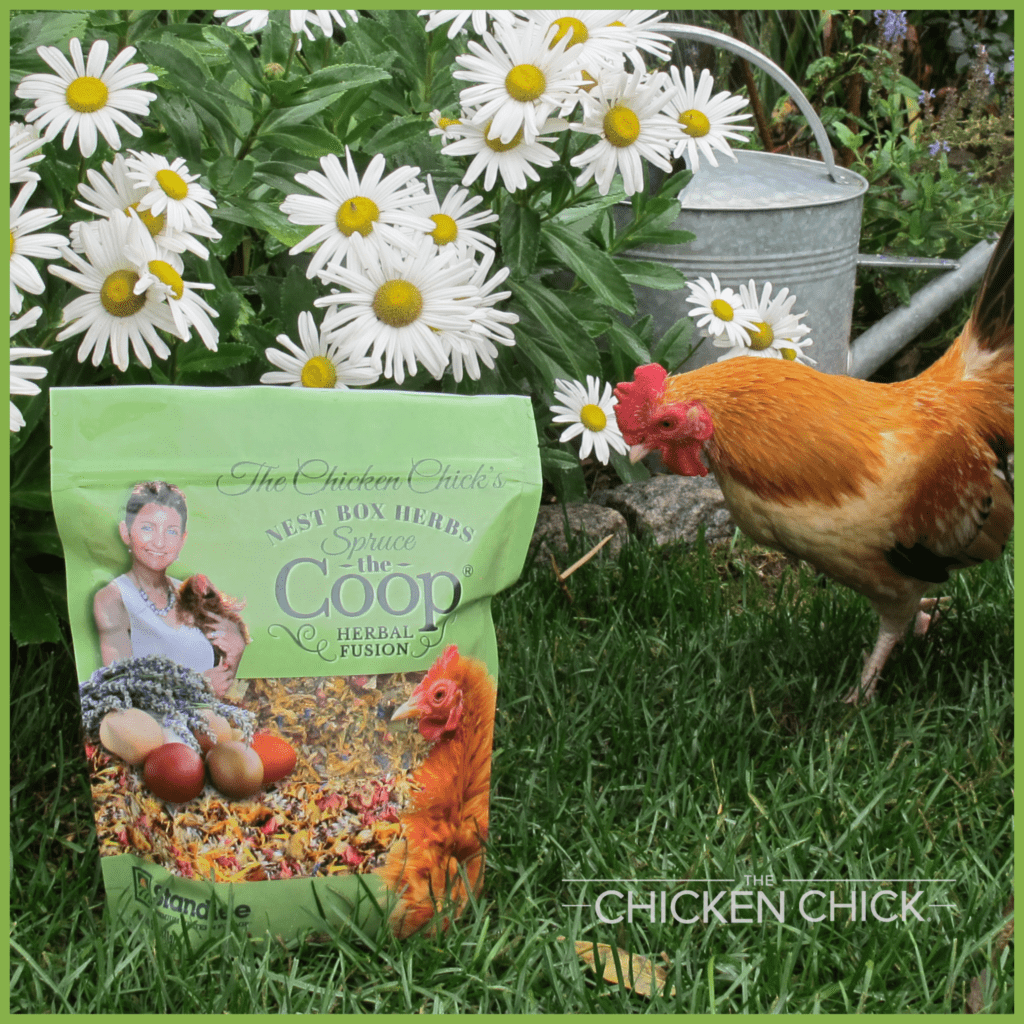

My pleasure, Jessi. Welcome to chicken keeping!
Thank you for addressing the ACV solution in summer heat! I'm a first time chicken momma in N Florida where the temps are 90+ most days. Although my flock is healthy, I add ACV to their water about twice a month. The water is changed out daily, but I would hate to encourage dehydration.
Um, I just get them to open their beaks by touching the back of the jaw w/ my syringe. (has long, curved end) I put it at the back of the tongue. Is this a problem ?
I lost 1 hen 2 days ago & 1 came down ill this AM. Heat Stress or Cidicios sp?
ATET Submission by Bettie Gordon Melinda’s deep dark secret is that she fell in love with aLeghorn. Yes it’s true; I fell in love with a big, handsome, white Roo that I saw on the television one day as I peered in the window (sorry for being a snoop Kathy). He was magnificent and oh so dreamy. They called him Foghorn Leghorn, and I knew right away that I wanted to be Mrs. Foghorn Leghorn. I dreamed of the wedding and how we would gaze in each other’s eyes and say I DO. Then one day I saw him again… Read more »
"ATET submission" Melinda is a reformed egg eater. She claims it was peer pressure that drove her to try the delectable liquid from that first cracked egg. Having undergone a rigorous therapy program designed to break the habit, Melinda contemplated a more pious career in a convent. At least there she might be safe from temptation and that wicked Liza!
~Tina E. aka nuzzymom1